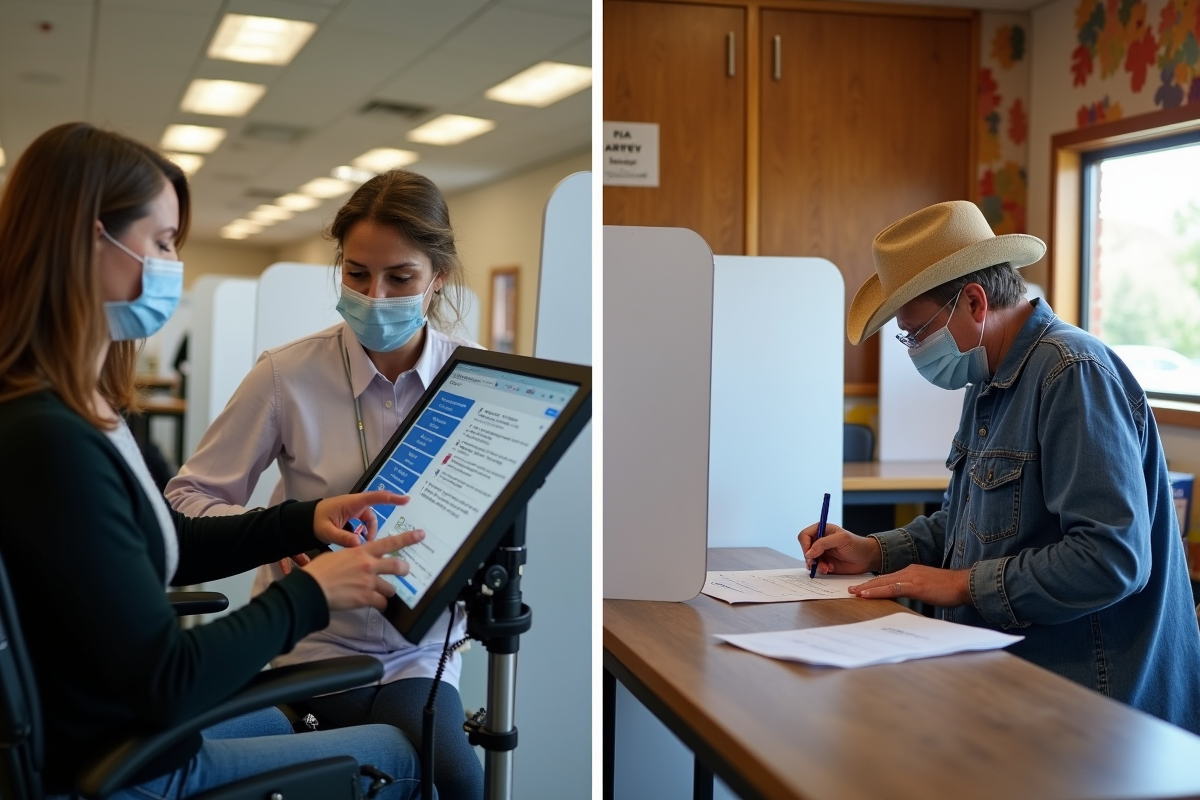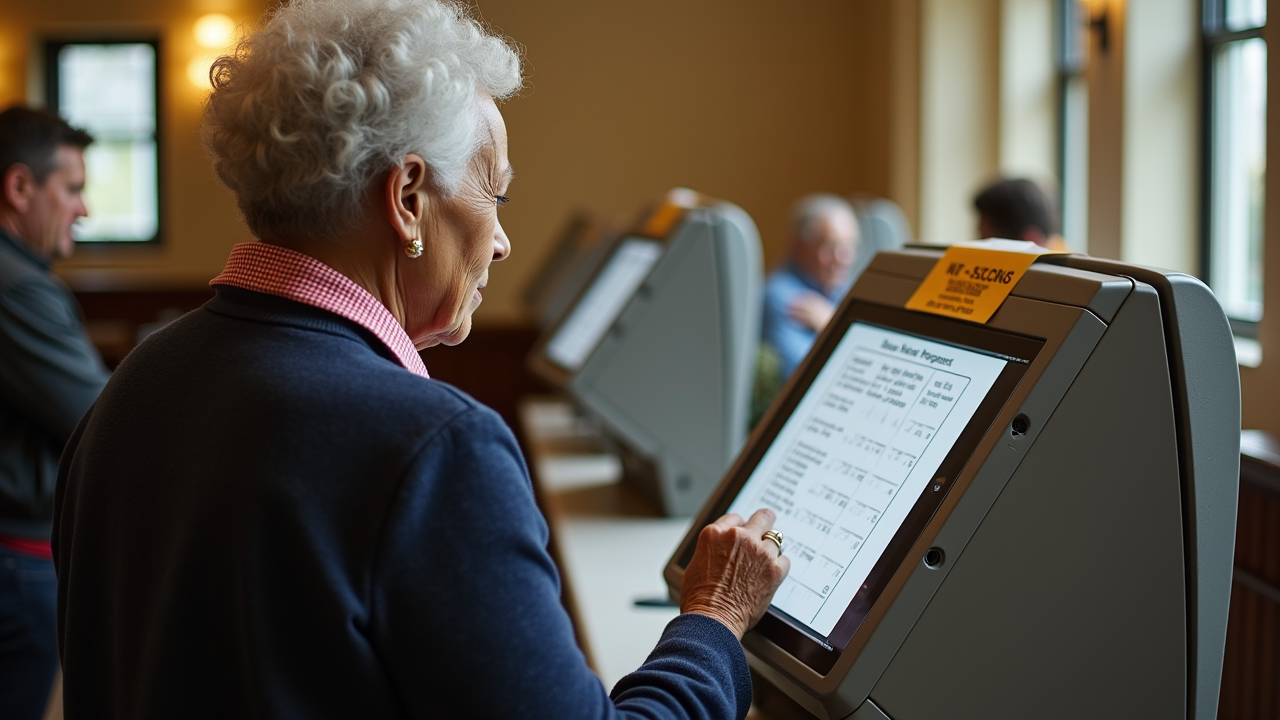
Recent legislative activity across 39 states reveals a concentrated effort to reshape election administration through reforms targeting security protocols, voter access, and campaign finance. With 644 related bills introduced within a single month, policymakers are navigating complex tradeoffs between election integrity and equitable participation.
Enhanced Verification Processes Dominate Reforms The majority of legislation focuses on strengthening voter eligibility checks, exemplified by Indiana's HB1680 requiring proof of citizenship documentation for registration. Connecticut's SB00661 mandates annual citizenship verification of all registered voters - a policy that election officials estimate could require 15,000+ hours of administrative work annually based on current voter rolls.
Accessibility Innovations Emerge in Key States Contrasting approaches emerge in states like Texas, where HB1885 guarantees restroom access at polling places for elderly and disabled voters, and Mississippi's SB2066 implements 21-day early voting periods. These measures aim to reduce barriers for:
- Older adults managing chronic health conditions
- Voters with physical disabilities
- Working parents needing flexible voting hours
Campaign Finance Controls Spark Debate New York's A02577 introduces novel corporate contribution limits by treating parent companies and subsidiaries as single entities. Meanwhile, Illinois SB0172 prohibits foreign nationals from funding ballot initiatives, reflecting growing concerns about international influence in local elections.
Implementation Challenges Surface Election administrators cite three primary hurdles:
- Resource allocation: Arizona's HB2586 pilot program for election worker communications platforms requires $2.1M in initial funding
- Technology integration: Indiana's SB0532 ballot tracking commission identified 47 legacy systems needing upgrades
- Training requirements: Connecticut's SB00743 recanvass procedures manual update will necessitate retraining 8,500 poll workers
Regional Disparities in Approach Northeastern states emphasize transparency measures like Connecticut's SB00655 requiring full documentation of vote totals. By contrast, Southern legislatures focus on enforcement, with Oklahoma's SB962 increasing election crime penalties by 300% for certain offenses.
Emerging Vulnerabilities Identified Analysis of proposed systems reveals potential unintended consequences:
- 23% of bills using AI for voter roll maintenance lack error correction protocols
- 15 states propose ballot tracking systems without language accessibility requirements
- 40% of enhanced ID measures don't account for tribal identification formats
The Road Ahead As these reforms progress toward implementation, success metrics will likely focus on three key indicators: reduced litigation rates for election challenges, maintained or improved voter participation rates, and public confidence surveys. The 2026 midterms will serve as the first nationwide test for many of these policies, with ongoing adjustments expected based on real-world performance data.
Related Bills
Elections - Local Boards of Elections - Open Meeting Requirements (Local Boards of Elections Transparency Act)
Absentee ballots; authorizing uniformed service member to receive certain absentee ballot. Effective date. Emergency.
Agreement Among the States to Elect the President by National Popular Vote
Relating To Partial Public Financing Of Elections.
Voting Rights Act of 2025 - Counties and Municipal Corporations
An Act Concurring In Proposed Amendments To The Delaware Constitution Relating To Technical Corrections.
Relating to providing voters access to a restroom facility at a polling place.
Relating to early voting by mail by any qualified voter, the electronic transmission of a ballot to a voter voting early by mail, and the repeal of certain criminal offenses concerning the solicitation and distribution of an application to vote by mail.
Relating to the deadline for an early voting ballot board to determine whether to accept voters' ballots.
Relating To Campaign Contributions.
Related Articles
You might also be interested in these articles
